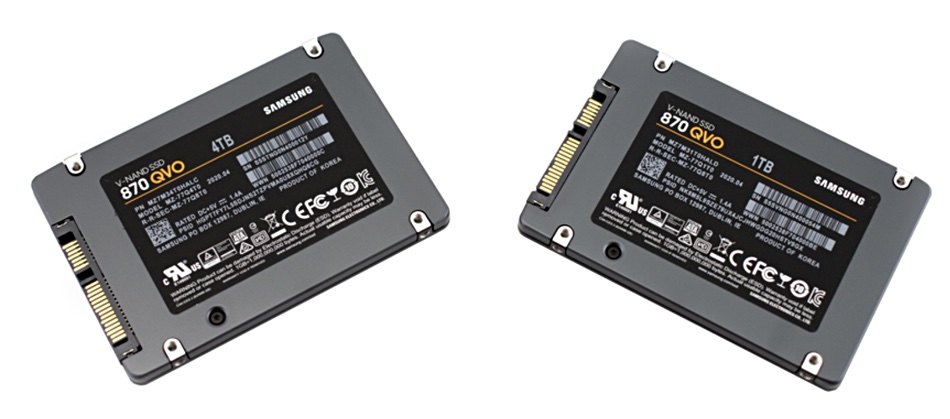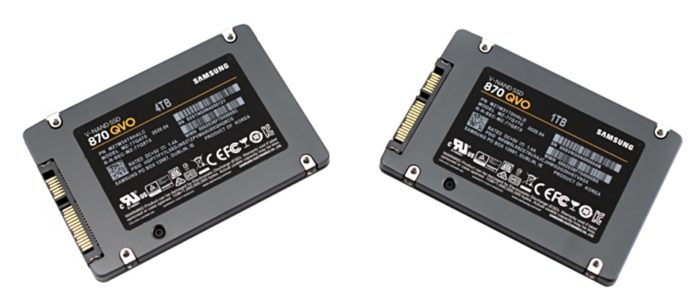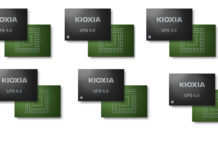Samsung has formally announced the 870 QVO SSD – after details were leaked in Tom’s Hardware. This is intended as a workhorse unit to replace disk drives in PCs, and is priced accordingly.
Dr. Mike Mang, memory brand product biz team VP at Samsung Electronics, said: “We are releasing our second-generation QVO SSD which offers doubled capacity of 8TB as well as enhanced performance and reliability.”
The 870 QVO has a 6Gbit/s SATA interface and uses QLC flash, bolstered with a variably-sized SLC cache to speed IO. The drive comes in a 2-5-inch form factor and has 1, 2, 4 and 8TB capacity points.
Prices start at $129.99 for the 1TB model, which is certainly affordable for an SSD. For comparison, 1TB WD Blue 6Gbit/s 7,200rpm disk drive costs $44.99 on Amazon.

The 870 QVO succeeds Samsung’s 860 QVO drive, which topped out at 4TB and used 64-layer V-NAND technology organised into QLC cells. The 870 QVO uses newer 100+layer V-NAND. Samsung has not confirmed layer count but industry sources suggest it is 128.
Samsung’s ‘TurboWrite’ technology adjusts the 870’s SLC cache to 42GB for the 1TB model and up to 78GB for the 2TB, 4TB and 8TB drives.
The performance is up 98,000/88,000 random read/write IOPS. Samsung said the read IOPS number is 13 per cent higher than the 860 QVO, but our records show the 860 has a 97,000 maximum (queue depth of 32), making the 870 a mere one per cent faster. And the 870 QVO is one per cent slower at random writes, as the 860 QVO reached 89,000 (queue depth of 32 again).
In sequential bandwidth the 870 provides up to 560MB/sec reads and 530MB/sec writes, while the 860 delivered up to 550MB/sec reads and 520MB/sec writes.
So, the IO differences between the 860 and 870 are minuscule. How about endurance? The 860 offered 1.44PB at the 4TB capacity level – as does the 870.
Endurance numbers for the other capacity levels are 1TB – 360 TB written, 2TB – 720TBW, 8TB – 2.88PBW, and there is a three-year limited warranty.
The 1TB and 4TB drives are available now and the 8TB version is expected in August.








